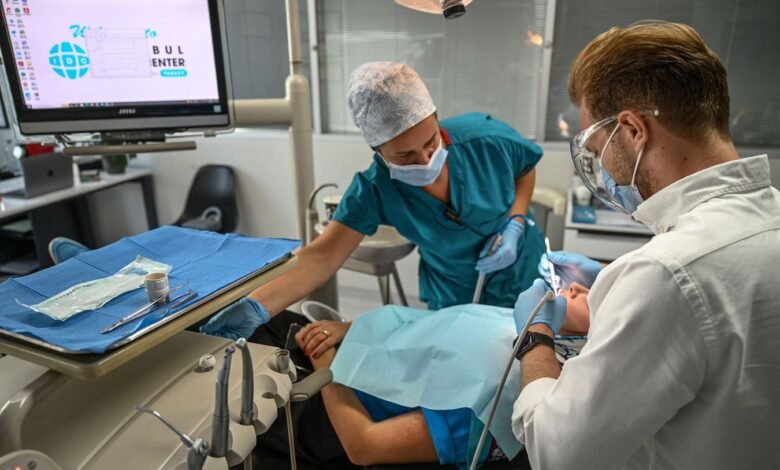Surprising Finding: Tooth Loss Associated With Increased Dementia Risk

The dentist is always telling you, and your aging loved ones to brush and floss. Get those regular dental checkups. Pay attention to your oral health. And as our loved ones age, this area of health seems to get neglected. After all, there are bigger things to worry about, right? Cardiac disease, diabetes, arthritis, and lots of other age-related illnesses get all the attention. But a study posted in the Journal of Post-Acute and Long-Term Care Medicine found that tooth loss is a risk factor for cognitive impairment and dementia. Who needs another risk factor for dementia?
No one likes going to the dentist but it can reduce dementia risk.
Prior Connection Between Oral Health And Dementia
In the study above, researchers found that adults with more tooth loss had a 1.48 times higher risk of developing cognitive impairment and 1.28 times higher risk of being diagnosed with dementia, even after controlling for other factors.
The notion that oral health is connected to dementia is not a new finding. Prior research suggests that poor oral health may increase the risk of developing dementia, while good oral health may help prevent it. The Alzheimer’s Association points to research making the connection between gum disease (gingivitis) and Alzheimer’s disease risk. The Alzheimer’s Association points out recent analysis led by the National Institute on Aging (NIA). Its scientists suggest that the bacteria associated with periodontal disease that causes chronic inflammation are also associated with the development of Alzheimer’s disease and related dementias, especially vascular dementia. The results were reported in the Journal of Alzheimer’s Disease.
What Can Families Do About Aging Parents’ Neglected Teeth?
While many people don’t make regular dentist visits themselves and don’t floss their own teeth every day, it is more important than ever to encourage your aging parents and other loved ones to start with getting a thorough dental exam. When the dentist looks at the older person’s mouth, they are checking not only for teeth that perhaps won’t last, they are certainly also looking for gum disease. And yes, the dentist is likely to tell them to take better care of their overall oral health. Will they listen? Perhaps with daily reminders, chances are better.
The Denture Dilemma
Sometimes we see aging parents and other loved ones with major tooth loss who don’t want to wear their dentures. The study connecting tooth loss to dementia risk tells us that each additional missing tooth was associated with a 1.4 percent increased risk of cognitive impairment and 1.1 percent increased risk of being diagnosed with dementia. In other words, the more teeth someone loses, with no dentures to replace them, the greater the risk of dementia. And when dentures are first fitted for someone, the fit may not be right as the person ages. The mouth can change along with everything else in the body. If your aging loved one has dentures but doesn’t wear them, it may be time to get a new set that is comfortable and does fit.
The Takeaways
There are already so many things that can increase our risk of developing dementia of any kind. We can at least avoid one visible clear risk: poor oral health, meaning gum disease and tooth loss. When a person does get and wear dentures, the risk decreases. If they can be persuaded to develop the habit of flossing their teeth every day, they are protecting their brains. If you are concerned about this issue and your own aging loved ones, keep this list in mind:
- Get aging parents in for a dental checkup, with x-rays and teeth cleaning. That can reveal the risk factors if the teeth and gums are not healthy.
- If cost of dental care is a reason for elders’ resistance, consider offering to help if you can. One preventive step is a lot less costly than dealing with an elder who develops dementia. Manage this risk.
- Pay attention to aging parents who have trouble chewing, or who don’t have or wear dentures. This can be a warning sign of bigger issues to come.




